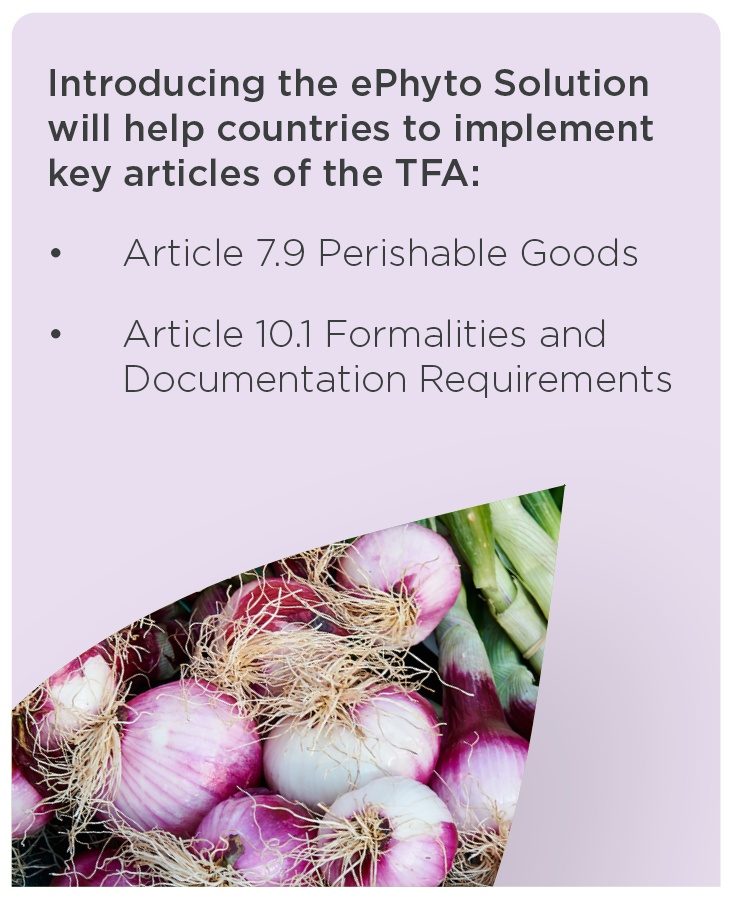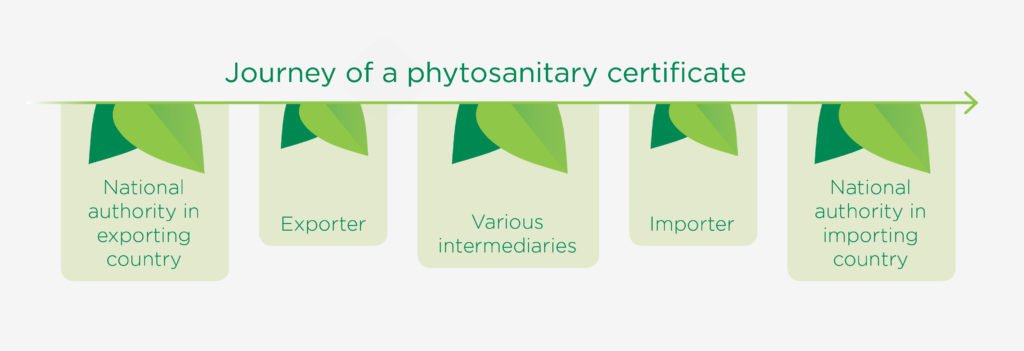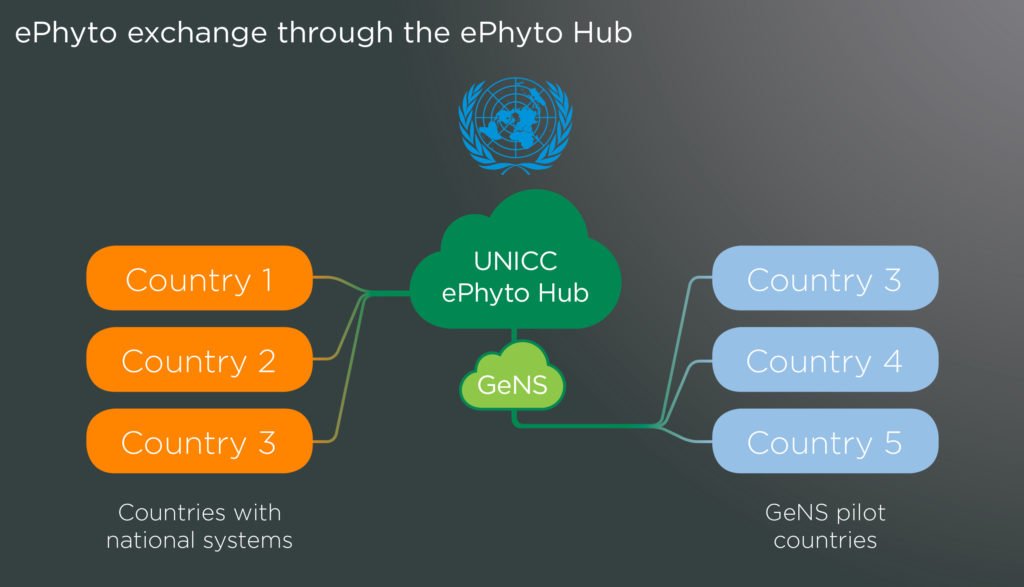
We are collaborating with the International Plant Protection Convention (IPPC) Secretariat to help governments in developing and least developed countries make trade simpler, faster and more cost-effective while strengthening plant health protection and consumer safety. We aim to do this by supporting countries to introduce electronic phytosanitary certificates, or ePhytos.
The challenge
Phytosanitary certificates are official documents issued by governments to confirm that shipments of plants and plant products being traded internationally are free of pests and diseases and therefore safe to import. Until recently, these certificates were always physical paper documents which were transferred between different parties by post, courier or other physical means. These paper certificates can take days to obtain and are prone to errors, loss, theft and counterfeiting. This slows down trade and at worst results in spoiled goods, additional demurrage charges and frustrated customers and governments.

The ePhyto solution
The IPPC Secretariat with support from the United Nations International Computing Centre (UN ICC) has developed the ePhyto Solution to bring phytosanitary certification into the digital era. The project was initiated and co-financed by the Standards and Trade Development Facility (STDF).
The ePhyto Solution allows countries to electronically exchange ePhytos with each other through a central hub, quickly, accurately and at low cost. The risk of loss, damage or fraud to the certificate is greatly reduced, as is the administrative burden on both border agencies and business. The collaborative nature of the project also paves the way for countries to exchange other types of data with trading partners.
Countries have two options in implementing the ePhyto Solution. They can either produce ePhytos and exchange them with the UNICC ePhyto Hub directly via their own national online platform or they can use the IPPC’s web-based application, the General ePhyto National System (GeNS).

How the IPPC and the Global Alliance for Trade Facilitation can help
In preparation for introducing the ePhyto Solution, countries must carry out a thorough analysis of their business process for trade in plants and plant products and assess whether to use a national system or GeNS. Most importantly, a country must have the political commitment and the support of its business community. The Alliance and IPPC Secretariat can support countries at any stage of the process by coordinating meetings between government and business, guiding countries through the business process analysis, delivering training to public and private sector representatives and assisting in deploying the IT solutions. Assistance is also available to countries who have made initial installations but need further support to ensure full adoption. All Alliance projects focus on producing measurable reductions in the time and cost of trade for both governments and businesses. These results can help governments demonstrate how they are improving the business environment in their country while strengthening plant and public health protection.
